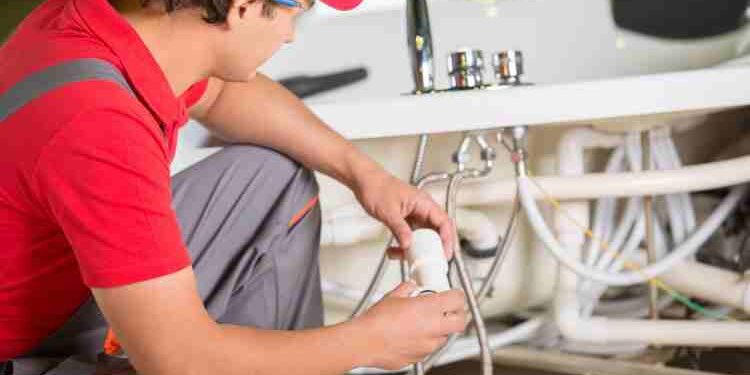Emergency plumbing situations can be stressful and expensive. Acting quickly to address them can reduce damage while keeping repairs within budget.
Acknowledging what constitutes plumbing emergencies can help to stave them off. Here are four of the more prevalent issues:
If you require professional assistance for your commercial plumbing emergencies, you can schedule a service here.
Clogged drains
Clogged drains can be an immense source of frustration and water damage. Clogs typically occur because food and other substances that do not break down, like fibrous foods, egg shells, and grease, build up, or when items such as paper towels and tampons accidentally make their way down the toilet – two causes which must not be flushed away down the toilet!
Plungers may help break free light clogs. If this fails, a plumber’s snake or auger may be more suitable; simply unscrew its P-trap from underneath your sink pipe, feed the tool slowly into your drain by cranking its handle, breaking up or hooking onto any obstruction as you go and finally using this same tool to pull it out and flush with hot water afterward.
Some clogs require professional assistance. To minimize their likelihood, establish regular cleaning processes and limit what goes down your drains.
Leaky pipes
Pipe leaks often go undetected until water starts pouring through and flooding your property. Leaks caused by sediment build-up, broken seals, poor soldering or simply age can quickly burst, leading to thousands of dollars of damage and leading to costly plumbing emergencies.
Commercial plumbers must inspect your building regularly in order to detect potential issues before they become emergencies.
As a temporary measure, simple tricks can help mitigate or prevent the effects of leaking pipes until a professional plumber arrives. Keep duct tape, pipe tape, patching kits and epoxy putty handy so quick fixes can be made without turning off water and drying out the area where you will work.
Keep in mind that any fix will only be temporary as professional plumbers must replace or repair water damage once replacement pipes have been installed; regular evacuation drills should also be conducted to make sure all occupants know how to respond in an emergency situation.
Sewer backups
Sewer backups are one of the most threatening and expensive plumbing problems to deal with, posing serious damage to your home and necessitating emergency repairs. There are a few warning signs you should look out for, such as slow-moving drains, gurgling noises and water backing up into toilets or tubs.
Moreover, keep an eye out for wetness around floor drains in the basement, garage or laundry rooms, as this is where sewage will often back up first before reaching toilets or tubs.
Frequent sewer backups could be an indicator of larger issues in your drain pipes or main sewer line, including blockages caused by soap scum, hair, grease or tree roots that penetrate and grow around it. If this is happening frequently for you, invest in professional inspection and cleaning to address this issue as soon as possible.
Water heater issues
Commercial plumbing systems are far bigger and more complex than those found in residential counterparts, which makes them more prone to issues like clogged drains and gas leaks. Business owners can mitigate this risk by keeping an eye on their property regularly while engaging a licensed plumber for regular inspections.
When experiencing a plumbing emergency in their business, it’s critical that swift action is taken quickly in order to protect occupants’ safety and limit property damage. Prioritizing people’s well-being over all else may help ensure an appropriate response and evacuation is implemented as quickly as possible. Businesses should ensure they have an emergency plumber on hand at all times to address urgent plumbing issues as soon as they arise, ensuring problems are repaired quickly and effectively before becoming more expensive repairs in the future.
